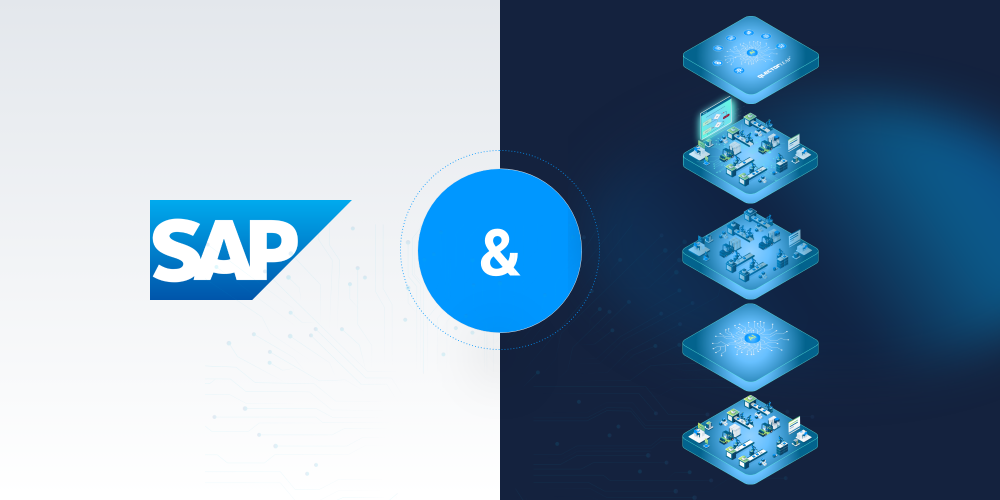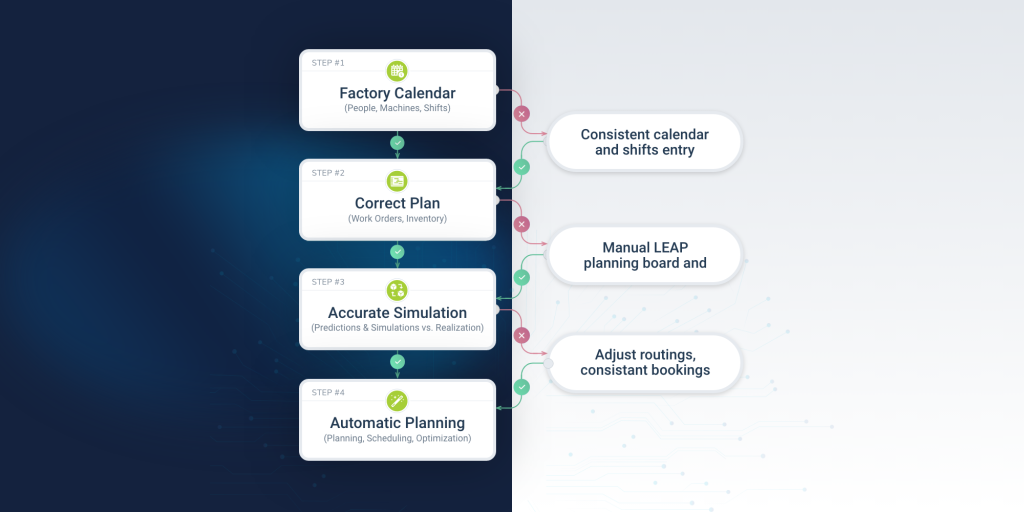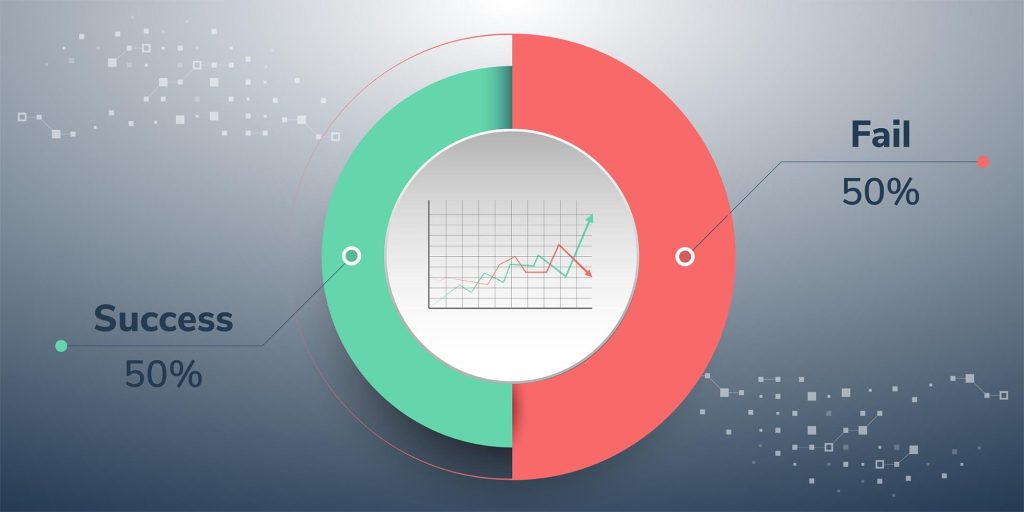How can you successfully enrich and extend one of the most renowned yet complex enterprise resource planning software systems – SAP?
By utilizing the latest artificial intelligence (AI) technologies! At Qlector, we have developed a unified and predictive production guiding platform with actionable insights, designed to seamlessly integrate and enhance SAP across five key areas: Master Data Management & Anomaly Detection, Workforce Scheduling, Actionable Insights Based on Knowledge Graphs and Human-like Understanding, Automatic Optimization, and Predictive Analytics with KPI Forecasting.
Based on our extensive experience with over 50 implementations in the DACH and CEE region, we have numerous satisfied customers who have successfully enriched their SAP systems with our innovative and award-winning solution. One of its greatest value lies in the understanding of the complexity that production planners, plant managers, shift leaders, and supply chain managers face in their roles.
Addressing Struggles for Different Manufacturing Roles and Industries
Supply chain and production planners struggle with manually checking materials, merging orders, managing shifts, optimizing stock, and addressing potential human errors. Managers must maintain KPIs, ensure safety, manage team dynamics, and address workforce challenges including last minute unplanned absences. Shift leaders deal with labor-intensive schedule adjustments, competency tracking, and inventory management, often relying on manual updates prone to errors. And supply chain managers manage tight delivery schedules, stock levels, and material arrivals, frequently updating and communicating changes manually. This complex, inefficient landscape, highlights the need for streamlined, automated solutions, enabling cross-department transparency.
How SAP is Enhancing Manufacturing Efficiency
SAP Production Planning and Detailed Scheduling (PP/DS) within SAP significantly enhances production planning and scheduling in manufacturing. It optimizes resource utilization, schedules operations based on material availability, and manages detailed scheduling tasks to ensure timely and efficient production. Coupled with Material Requirement Planning (MRP), PP/DS provides material requirements for production to cover demands and improving efficiency.
SAP Integrated Business Planning (IBP) offers a holistic view of supply chain management, integrating sales and operations planning, demand forecasting, inventory optimization, and supply planning. It facilitates collaborative planning across the organization, aligning departments and improving responsiveness to market changes. Together, SAP PP/DS and IBP optimize production and supply chain processes, enhancing efficiency and agility in manufacturing.
Elevating SAP with QLECTOR LEAP in Five Key Areas
We will now explore how QLECTOR LEAP can enhance and extend SAP across five crucial areas: Master data management and data anomaly detection, Workforce scheduling, Real-time oriented and AI-powered features for continuous production flow and actionable insights, Automatic optimization, and Predictive analytics with KPI forecasting.
Master Data Management and Anomaly Detection
When discussing the enhancement and enrichment of SAP through the Qlector Leap solution, it is essential to recognize SAP as a key data source and a strategic partner. To facilitate this integration (we are an SAP Silver Partner), we have developed standard connectors that enable the efficient extraction and processing of master data. Powered by AI, Qlector Leap incorporates additional production data – such as from Manufacturing Execution Systems (MES) or other data capture methods like traceability systems – to enrich SAP data significantly, marking a profound shift in the paradigm of production planning and scheduling.
Comparison of Norms with Actual Production Data
By merging SAP data with production data from MES, we enable users to compare standard guidelines (norms) from master data with actual production metrics. This comparison aids in identifying anomalies and continually improving the accuracy of SAP’s master data. With the consistent integration of up-to-date production data, the system learns in real time, thus continually enriching SAP with new insights.
Master Data Challenges Solved
Furthermore, many companies face challenges with the implementation of SAP PP/DS due to outdated, incorrect, or poorly managed master data. Our Qlector Leap solution addresses these issues by initially detecting data anomalies and then enriching SAP data with insights from Manufacturing Execution Systems (MES) and other systems. This approach significantly enhances the effectiveness of various Advanced Planning and Scheduling (APS) tools. It enables more accurate, up-to date and realistic production planning and scheduling, which takes into account actual shop floor conditions, even with co-operants operations, and reflects the real challenges that must be addressed by production planners and managers in order to ensure more accurate outcomes and improved operational efficiency.
Workforce Scheduling and SAP
People in manufacturing companies are often viewed merely as resources to be scheduled. However, we go beyond merely seeing a worker as a data point by creating a digital twin for each individual. This enables us to develop the best possible plans and schedules, informed by insights into each worker’s experiences and productivity. This strategy ensures workers are optimally assigned to tasks and shifts, maximizing efficiency, output, and product quality.
Considering the Realistic Throughput of Individuals
Qlector Leap generates the most optimal plans and schedules based on sales or production demands, worker competencies, skills, licenses, certifications, limitations, and regulations (e.g., maximum working hours, breaks, rest periods between shifts, and contractual working time). We account for the realistic throughput of individuals, ensuring continuous learning based on the experience, workers efficiency or frequency of working on a specific product (work center or production line).
People as Valuable Resources
In conjunction with SAP, this approach allows us to better allocate people as valuable resources. It also enables our users to respond more effectively to unforeseen events, such as absences – not merely through redistribution, but by redistribution according to the actual characteristics of individuals provided by the digital twin. Such an approach to deploying workers has been largely overlooked in the past. Previously, all individuals were treated similarly; the only differences were in competencies or knowledge. However, they were not differentiated based on actual output and experience, which AI now enables us to consider.
Providing Continuous Production Flow and Actionable Insights
With Qlector Leap, we provide insights into individual production events and the reasons behind them, which we obtain from the knowledge graph. We go beyond typical “what-if” scenarios, enabling users to understand the reasons and various parameters that influenced certain decisions.
In this way, we achieve an understanding like that of a human (production planner), moving beyond mere numerical data analysis to include a deeper comprehension of the underlying contexts. With this mode of operation, we also indirectly empower SAP with knowledge graphs, offering deeper insights into actual events and decision-making processes.
Automatic Optimization
When developing the Qlector Leap solution, we introduced new AI algorithms not previously present in traditional transaction systems such as SAP or other classic APS systems. In doing so, we provide a significant advantage to our users by empowering and enriching these systems with AI and AI agents.
Our Solution Utilizes Historical Data
So why are we confident that our approach to production planning and scheduling is more efficient and successful? Unlike traditional methods that rely solely on fixed norms, our solution utilizes historical data and ensures optimal production planing and scheduling with minimal human intervention. We are considering the outcomes of past decisions, while classic APS systems typically only rely on fixed (static) norms from ERP systems, which do not incorporate or understand past decisions.
Predictive Analytics with KPI Forecasting
Given that SAP only records current production statuses, we have upgraded it with the Qlector Leap to provide users with insights into the future. This enhancement is exemplified by future KPIs, where key users gain foresight into upcoming developments in crucial production parameters such as stock status, delays, workforce needs, and delay timings. Based on these projections, AI or key users – such as planners, plant managers, or supply chain managers – can take preventive actions to mitigate the impacts of these potential issues before they escalate.
A vital advantage in volatile times
This capability is particularly crucial given the current volatility in the supply chain. The foundation of our approach is data from systems like SAP and other related systems (MES, APS, SCM solutions). However, Qlector Leap enhances this data with much richer information about actual conditions and events on the shop floor, providing our users with a significantly improved understanding and response capability.
Importance of Reliable Consulting and Implementation Partner
Today, the use of AI is widespread in sectors such as marketing and finance. However, in the manufacturing, introducing AI requires not only a broader understanding of specific manufacturing industry, business processes and functions and their limitations but also an awareness that solutions go beyond mere numerical calculations. Therefore, it is beneficial for companies to begin implementing AI solutions with the support of a reliable consulting and implementation partner who possesses deep domain knowledge and extensive experience in manufacturing and the development of advanced AI solutions.
Advice and Research from leading consulting firms
This perspective is supported by numerous surveys of globally established consulting firms. Accenture, for example, has extensively researched how SAP is leveraging AI and how AI is transforming global supply chains. Accenture works with SAP to integrate generative AI into their solutions, enhancing various aspects of supply chain management and helping businesses achieve greater visibility and efficiency, optimize resources, and enhance resilience across supply chain networks.
Faster Implementation and Robust Support
When it comes to reliable partners, Qlector stands out by enabling faster implementation and providing robust support in driving a company’s digitalization with AI to the highest level. With the extensive support from the Qlector team, implementation proceeds much quicker, and fewer IT resources are required compared to conventional software or IT systems.
Transform Your Processes with Qlector
If you or your company is considering an effective transformation of production planning, scheduling, and optimization processes, contact us at [email protected] today to schedule a free 20-minute consultation about your needs and challenges. Discover how our expert team and comprehensive support can equip you with an advanced AI solution that perfectly fits your business needs.

Mateja Lavrič
CEO at QLECTOR












